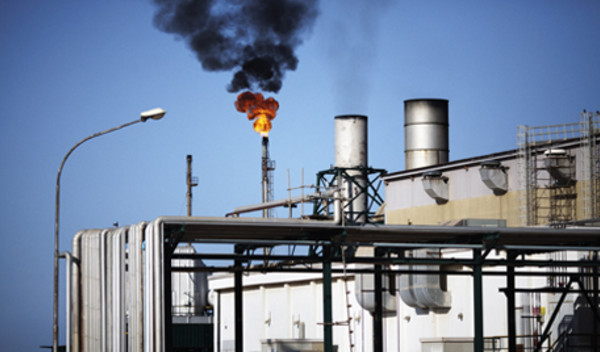

Building a green portfolio should not have to mean excluding entire sectors, according the new manager of the Edinburgh Investment Trust.
James de Uphaugh, chief investment officer and chairman of Majedie Asset Management, which has managed the trust since March 2020, told FTAdviser that a dogmatic exclusion of sectors was the easy solution to climate change, but it was not the one he was taking.
“The reality is more nuanced," he said.
“The greenification of growth requires a lot of metals, and a lot of energy in the short term, because it requires a lot of infrastructure building. I think the [most important focus] is to do it in a way that is as low carbon as possible, and ensure that the people or the companies achieving that are the responsible ones.”
He added that even companies that are normally seen as environmentally friendly can sometimes not be as “green” as first thought.
“The reality is, if you look at a Tesla, it's made of metal, and EV charging points - what are they made of? Like everything, it's a bit more complicated. And I think our approach recognises that complication.”
De Uphaugh co-founded Majedie in 2002, and at the beginning of March last year surprised the industry by winning the mandate for the Edinburgh investment trust, which was previously run by Mark Barnett at Invesco, and before then, Neil Woodford.
The intention to replace Barnett as manager with de Uphaugh was first announced in December 2019, after the trust’s results showed its underperformance had extended beyond three years, losing 14 per cent while the sector gained 7 per cent.
Of the time when Majedie took control, just as the pandemic was rising, de Uphaugh said that although there was a lot of uncertainty, he and his team thought it was slightly “overdone”.
“There was gut wrenching uncertainty during that period,” he said.
“Within reason, we thought that the extreme level of uncertainty and unease was overdone, but I would say, as it became clearer that the scale of the effort to sort a vaccine, we began to also increase the holdings in what are in a cliched way, termed reopening plays (Easyjet, Greggs etc).
“Uncertainty is good because you don’t get attractive opportunities when the news is positive. You get the best opportunities when the news is pretty awful.”
At the end of March, in the new management’s first month overseeing the trust, de Uphaugh and deputy manager Chris Field had almost entirely reconstructed the trust, leaving only five of the previous manager’s stocks in place.
The trust, which is now worth £1.2bn, is 60 per cent invested in FTSE 100 firms, with a further quarter in FTSE 250 companies.
The individual stocks are invested across personal care, drug and grocery stores (nearly 12 per cent), banks (9 per cent), and industrial support services, oil gas and coal, and industrial metals and mining (6.9, 6.8 and 6.2 per cent respectively).
Its top three holdings include Royal Dutch Shell (5 per cent), Ashtead Group (4 per cent) and Anglo American (4 per cent).
The trust posted a 28 per cent return on NAV for the year to the end of March, and in April this year was trading at a 3.7 per cent discount to NAV, down from 11.5 per cent in March 2020.
Where does de Uphaugh think the trust is now?
“At the risk of overstating it, I think we're in a better place than we hoped we'd be.
“We're pleased but the reality is, we are only one year in. The idea is to endeavour to crank out some performance over a longer period.
“So it’s a strong start, but it’s a start rather than anything else.”
sally.hickey@ft.com



